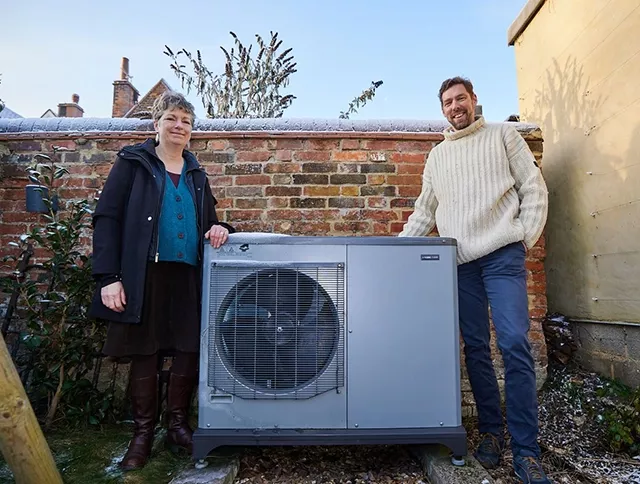
Alongside University College London (UCL), the Oxford University is to lead an £8.7m research project to establish an Energy Demand Observatory and Laboratory (EDOL) in the UK. The five-year programme, funded by EPSRC and working with the Department for Business, Energy and Industrial Strategy (BEIS), will establish a national energy data platform to help facilitate the transition to net-zero carbon emissions.
Energy use in homes is responsible for almost a fifth of UK carbon emissions, and the biggest driver of increased energy demands during the peak winter period. If the UK is to reach net-zero emissions by 2050, domestic energy will have to stop using natural gas and transition to a low-carbon system. However there is currently very little information on how this will impact patterns of energy usage, and whether this will overlap with other changes to the UK’s energy system, including the increased uptake of electric cars and heat pumps.
The EDOL will address this by providing a high-resolution data resource that will track energy use in real households, enabling us to understand how, why, and when domestic activity is impacting energy demand and associated carbon emissions.
The University of Oxford will lead on instrumentation and analysis, and qualitative research, overseen by Dr Philipp Grünewald Department of Engineering Science, and Dr Tina Fawcett from ECI.
Dr Grünewald said:
EDOL will raise evidence-based policy making to a new level, by providing a scientifically rigorous demand observatory. This collaboration will be unique in providing a detailed, longitudinal resource of UK domestic energy use which will be available to scientists, industry, and policy-makers. The research will be dynamic, able to respond to a fast-moving technological and policy landscape, and will enable us to propose cost-effective smart data solutions and innovation in real-time and at scale.”
EDOL builds on Dr Grünewald’s previous research to develop tools to collect high-resolution electricity and gas readings from UK households. This has already identified key opportunities to reduce peak energy demands from UK homes. For instance, demand reductions of over 20% could be achieved by people shifting or avoiding the use of cooking appliances to prepare hot meals during the most critical two hours. Dr Grünewald added:
"Much public attention is focused on the 'average user' with an 'average bill' of £2,500 pounds. In practice we find that the top 10% use ten times as much electricity as the bottom 10%. Understanding these discrepancies better will be important in reducing fuel poverty and ill health resulting from poorly heated homes."
EDOL is a really important, long-term investment in energy demand research, which will enable us to understand current and future household energy use as never before. It will provide insights into the myriad influences on energy demand – from housing conditions, energy prices and heating systems to personal values, capabilities and behaviours.
- See the full news story on the University of Oxford website

Photo by Ian Wallman

